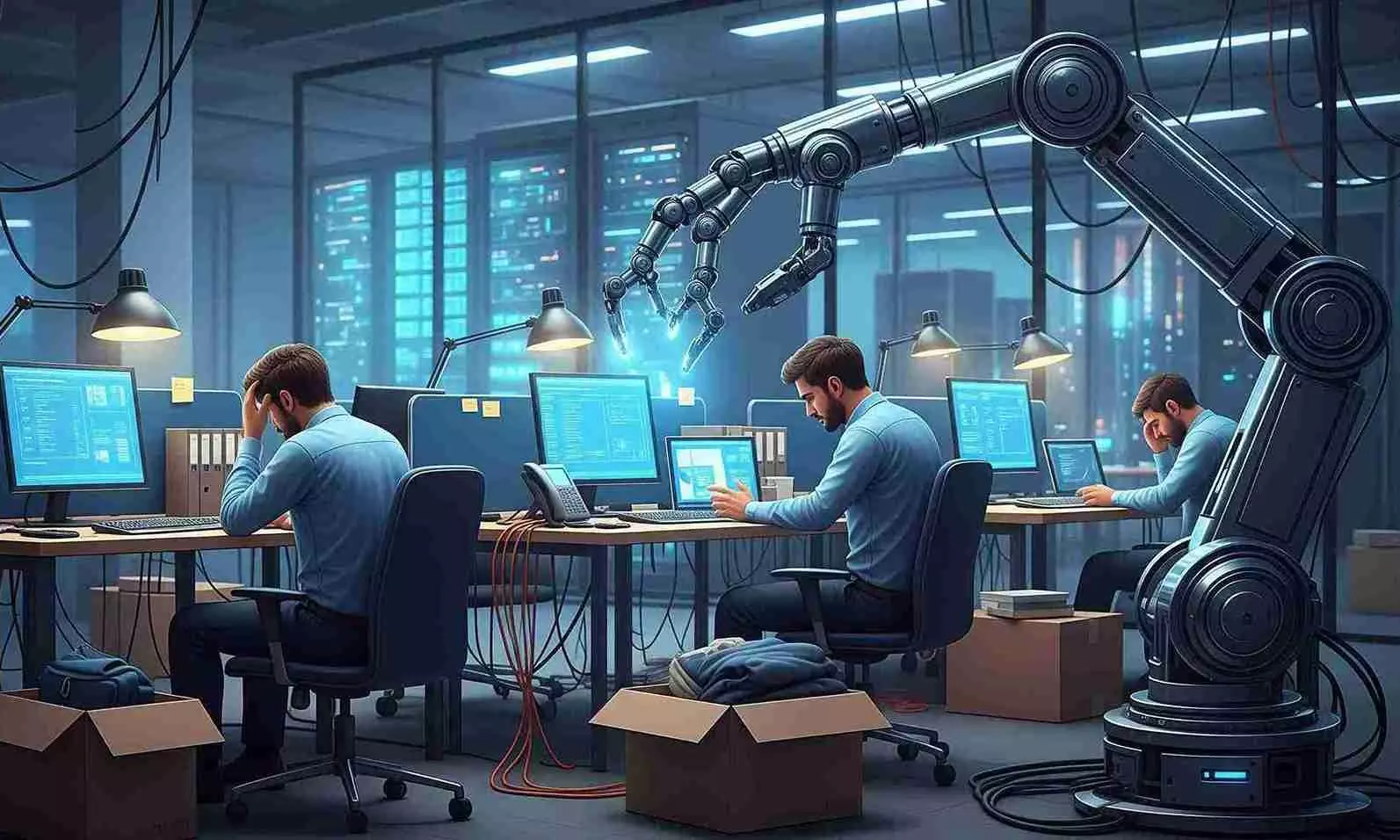
Not AI? TCS cuts 2 pc staff; here are other IT majors that slashed jobs
Amidst denials, industry experts link job reductions at TCS and other global tech firms to significant AI investments and restructuring efforts

TCS has announced a plan to cut about 2 per cent of its global workforce—around 12,000 roles—primarily in middle and senior management, to be executed over its 2026 financial year. The company emphasised that the reduction is not triggered by AI replacing jobs, but rather reflects roles where redeployment and reskilling have not been feasible.
Yet, media reports, quoting industry experts, suggested AI transformation as a likely driver of the decision.
Also read: Satya Nadella addresses Microsoft layoffs, defends job cuts amid AI push
List of job cuts by tech majors
TCS is not the first. Here is a list of global IT majors who has rolled out job cuts in recent months:
- In May 2025, Microsoft shed over 6,000 jobs—about 3 per cent of its staff—to streamline organisational layers and boost engineering productivity. That step was followed in July by a fresh wave of cuts affecting approximately 9,000 employees, or nearly 4 per cent of its global workforce, including roles in gaming, cloud, hardware, and management positions.
Despite record financial results, the company cited cost efficiency amidst rapid AI infrastructure expansion, including an anticipated $80 billion AI spend. Employee backlash highlighted the tension between layoff messaging and Azure’s growth narrative
- Intel plans to reduce 15–20 per cent of its workforce, amounting to more than 12,000 jobs globally by the end of 2025. The job cuts notably impact its manufacturing and chip units as the company restructures under new leadership. While framed around financial underperformance and higher cost structure, analysts connect the radical shift to rising AI-driven demand for specialised chips—forcing Intel to pivot costs and streamline operations
- Meta announced a 5 per cent workforce reduction in early 2025—about 3,600 positions—labelled as performance-based trimming. It followed up with cuts to its Reality Labs VR division (100+ jobs), even as it continued aggressive AI hiring and investment.
- Google (Alphabet) eliminated roles across its Platforms & Devices, Cloud, and business teams. Hundreds of jobs in Android, Pixel, Chrome, and sales were axed, though the company calls it restructuring after team mergers.
- Salesforce cut more than 1,000 jobs, even as it ramped AI-based product development. The message: rightsizing traditional teams to invest in AI-enabled operations and sales.
- CrowdStrike, the cybersecurity firm, cut 5 per cent of its global workforce—about 500 roles—citing “AI efficiencies” and the need for leaner operations to achieve revenue goals.
- HP slashed 2,000 6,000 roles under its “Future Now” restructuring, with pressure to pivot toward AI-enabled PCs and high-performance computing sectors.
- Automattic (WordPress) laid off 16 per cent of its global team (around 270 jobs), citing productivity concerns amid a tough digital landscape, which included AI-generated content shifts.
- Match Group, parent of Tinder and Hinge, cut around 13 per cent of staff as it sought sharper speed and efficiency, aligning focus on AI-backed apps and product cycles.
Unmistakable pattern
While most of these companies formally deny AI as the primary reason behind layoffs—citing cost pressures, slow external demand, economic uncertainty or performance rebalancing—the pattern is unmistakable:
- Large-scale, non-financially distressed firms are trimming staff while simultaneously doubling down on AI investments.
- Jobs in middle management, sales, hardware operations, and traditional software roles are disproportionately targeted.
- Companies publicly emphasise “reskilling” and future readiness while quietly cutting the ranks of those once considered core.
The hint of AI disruption
As TCS’s COO previously asserted, automation “is about upscaling business, not job cuts”—but the reality suggests otherwise. Analysts like HFS Research’s Phil Fersht argue that AI is dismantling the labour-heavy services model across IT firms, forcing them to rebalance workforce composition even within historically stable employers like TCS.
Also read: Microsoft layoffs: Xbox division likely to face large-scale job cuts
This unfolding wave of global layoffs—from India’s TCS to US giants Microsoft, Intel, and upstarts like CrowdStrike—marks a significant turning point in the IT sector. It underscores the high-stakes clash between AI disruption, legacy staffing models, and rising expectations from clients for leaner, tech-savvy delivery.
Even as companies disclaim AI as a cause, the public narrative, internal restructuring moves, and expert commentary suggest it is very much the elephant in the boardroom.
In sum, AI may not be the official reason—but it’s increasingly the most plausible one.

